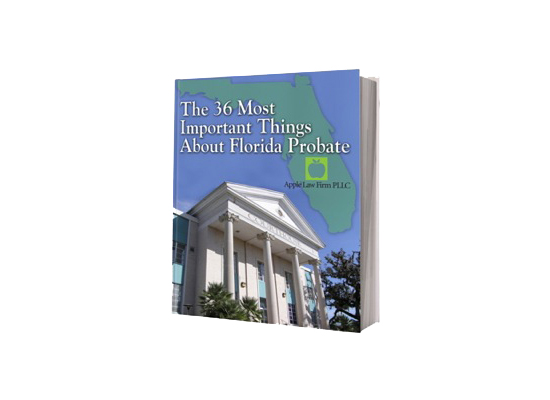LANDING SAFER
Guardian Advocacy
Guardian Advocacy is a legal proceeding in Florida for adults with a developmental disability. Florida Statute 393.063(12), defines a developmental disability as “a disorder or syndrome that is attributable to intellectual disability, cerebral palsy, autism, spina bifida, Down syndrome, Phelan-McDermid syndrome, or Prader-Willi syndrome; that manifests before the age of 18; and that constitutes a substantial handicap that can reasonably be expected to continue indefinitely.”
Guardian Advocacy allows someone, most often the parent(s), to continue being the guardian of the individual with the developmental disability when they become an adult. Just like all other minors, individuals with a developmental disability are legally an adult when they turn 18 years of age. Being the guardian of someone with a developmental disability after they become an adult allows you to continue caring for them as if they were still a minor. Just like being the parent of your minor child, you are given the ability to continue making all of their medical, financial, education, residential decisions.
THE GUARDIAN ADVOCACY PROCESS
The Guardian Advocacy process begins with the filing of a petition with the Court. Per the Florida Probate Code Rule 5.649, the petition must:
- the name, age, and present address of the petitioner and the petitioner’s relationship to the person with a developmental disability;
- the name, age, county of residence, and present address of the person with a developmental disability;
- that the petitioner believes that the person needs a guardian advocate and the factual information on which such belief is based;
- the exact areas in which the person lacks the ability to make informed decisions about the person’s care and treatment services or to meet the essential requirements for the person’s physical health or safety;
- the legal disabilities to which the person is subject;
- if authority is sought over any property of the person, a description of that property and the reason why management or control of that property should be placed with a guardian advocate;
- the name of the proposed guardian advocate, the relationship of the proposed guardian advocate to the person with a developmental disability, the relationship of the proposed guardian advocate with the providers of health care services, residential services, or other services to the person with developmental disabilities, and the reason why the proposed guardian advocate should be appointed. If a willing and qualified guardian advocate cannot be located, the petition must so state; and
- whether the petitioner has knowledge, information, or belief that the person with a developmental disability has executed an advance directive under chapter 765, Florida Statutes, or a durable power of attorney under chapter 709, Florida Statutes.
After the petition is filed, the Court must appoint an attorney to represent the individual with the developmental disability within 3 days. This attorney is known as the court-appointed attorney. Their role is to verify the developmental disability for the Court so the Court can determine whether a Guardian Advocacy is appropriate. The court-appointed attorney also meets with the individual with the disability as well as the person(s) seeking guardianship and advises the Court whether they should be awarded guardianship.
TYPES OF GUARDIAN ADVOCACY
There are 3 types of Guardian Advocacy. A petition can be filed to become a Guardian Advocate of the Person, Guardian Advocate of the Property, or Guardian Advocate of the Person and Property. A Guardian Advocate of the Person and Property is a Plenary Guardian Advocate. Which type of Guardian Advocacy you need depends on which rights the individual with the developmental disability needs your assistance with. Guardian Advocate of the Person allows you to make all medical decisions on their behalf. This includes determining their residence, making their medical and mental health decisions as well as controlling their social settings. Being a Guardian Advocate of the Property allows you to manage all assets the individual with the developmental disability may have.
DUTIES OF A GUARDIAN ADVOCATE
Once you are appointed a Guardian Advocate, there are duties that must be performed immediately and duties that much be performed every year. A Guardian Advocate of the Person must file an Initial Plan with the Court within 60 days of being appointed. The Initial Plan tells the Court what services the individual with the developmental disability will need during the upcoming year. Possible required services could be for mental health, medical purposes, or social and personal needs. The plan must be updated with the Court each year.
If you are appointed a Guardian Advocate of the Property, then an Initial Inventory must be filed with the Court within 60 days of being appointed. The Initial Inventory tells the Court what assets the individual with the disability has. Before any of the assets can be spent, you must first obtain permission from the Court. Additionally, an accounting must be filed each year. The accounting tells the Court how the assets have been managed and used during the preceding year.
If your child is about to turn 18 years of age with a developmental disability, contact the Law Office of David M. Goldman, PPLC today to speak with a Jacksonville Guardianship Lawyer. The Guardian Advocacy process generally takes an estimated 30 to 45 days.












